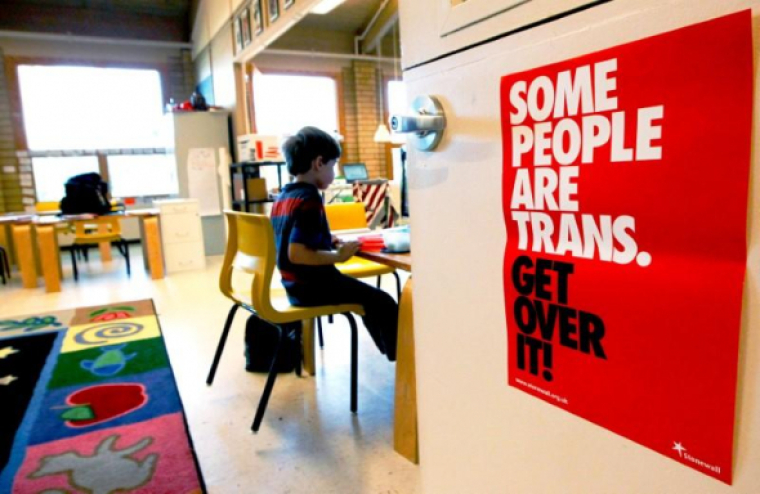Canada sees exponential rise in trans-identified kids, referrals to gender clinics

Gender clinics in Canada are reporting an exponential growth in the number of children being referred for gender transitions.
According to The Canadian Broadcasting Corporation, some children's hospitals in Canada are reporting at least a doubling, if not more, in the number of children and teenagers seeking gender transitions.
The outlet reports that British Columbia Children's Hospital reported receiving 240 referrals of trans-identified children in 2018. In 2013, only 20 children were referred to the hospital for gender identity issues.
The Hospital for Sick Children in Toronto reports that the number of referrals they're receiving also has doubled since 2013, when about 100 were referred for gender dysphoria.
Stephen Feder, who co-directs the gender diversity clinic at the Children's Hospital of Eastern Ontario, explained that it's getting hard to keep up with the increasing demand his clinic is seeing.
About a decade ago, Feder said his hospital would maybe see about one or two patients each year struggling with their gender dysphoria. But in 2018, over 189 patients were referred to the CHEO gender clinic. The hospital serves patients living in eastern Ontario and western Quebec.
Children and teens struggling with gender dysphoria are sometimes injected with hormone-blocking drugs, cross-sex hormones and undergo extreme surgical procedures in an effort to look like the opposite sex.
Lupron — a hormonal agent that's employed to fight prostate cancer in men and is sometimes used to treat sex offenders — is now being injected into children who suffer from gender dysphoria, The Christian Post reported last December.
The drug has never been green-lighted by the FDA for that purpose, nor have there been any peer-reviewed studies done on the drug's long-term physical and psychological side effects on children.
A national research study involving 10 clinics from across Canada called Trans Youth Can! also found that the number of children being referred to gender clinics has increased significantly.
The rise in referrals in Canada is on par with the exponential rise in teens identifying as transgender or nonbinary in places like the United States and the United Kingdom.
In fact, the U.K. is investigating an increase of 4,000 percent over the last 10 years in the number of kids referred for gender dysphoria.
Dr. Margaret Lawson, an endocrinologist at CHEO who is involved in the study could not explain the growth when asked by CBC.
"We really don't know. I think there's much more knowledge, much more awareness in the community in general about gender diversity, and that gender diversity is different than sexual orientation," Lawson said.
Although Lawson claims that putting children on hormone blockers is "reversible," other health experts have warned of dangers associated with putting children on hormone-blocking drugs like Lupron.
Critics also say that the puberty stunted as a result of hormone blockers is not reversible and that patients can be sterilized.
"Children with [gender dysphoria] do not have a disordered body — even though they feel as if they do," reads a November 2018 policy statement on gender dysphoria from the conservative network American College of Pediatricians. "Similarly, a child's distress over developing secondary sex characteristics does not mean that puberty should be treated as a disease to be halted, because puberty is not, in fact, a disease."
ACP warns that there are about 40 gender clinics across the U.S. that promote the use of pubertal suppression and cross-sex hormone therapy for children.
"The rationale for suppression is to allow the gender-dysphoric child time to explore gender identity free from the emotional distress triggered by the onset of secondary sex characteristics," the policy statement reads. "The standards followed in these clinics are based on 'expert opinion.' There is not a single large, randomized, controlled study that documents the alleged benefits and potential harms to gender-dysphoric children from pubertal suppression and decades of cross-sex hormone use."
The ACP adds that there is no single long-term study that compares the outcomes of various psychotherapeutic interventions for childhood gender dysphoria with the outcomes of pubertal suppression.
"In today's age of 'evidence-based medicine,' this should give everyone pause," ACP argues.
Continue reading about trans-identified kids on The Christian Post.